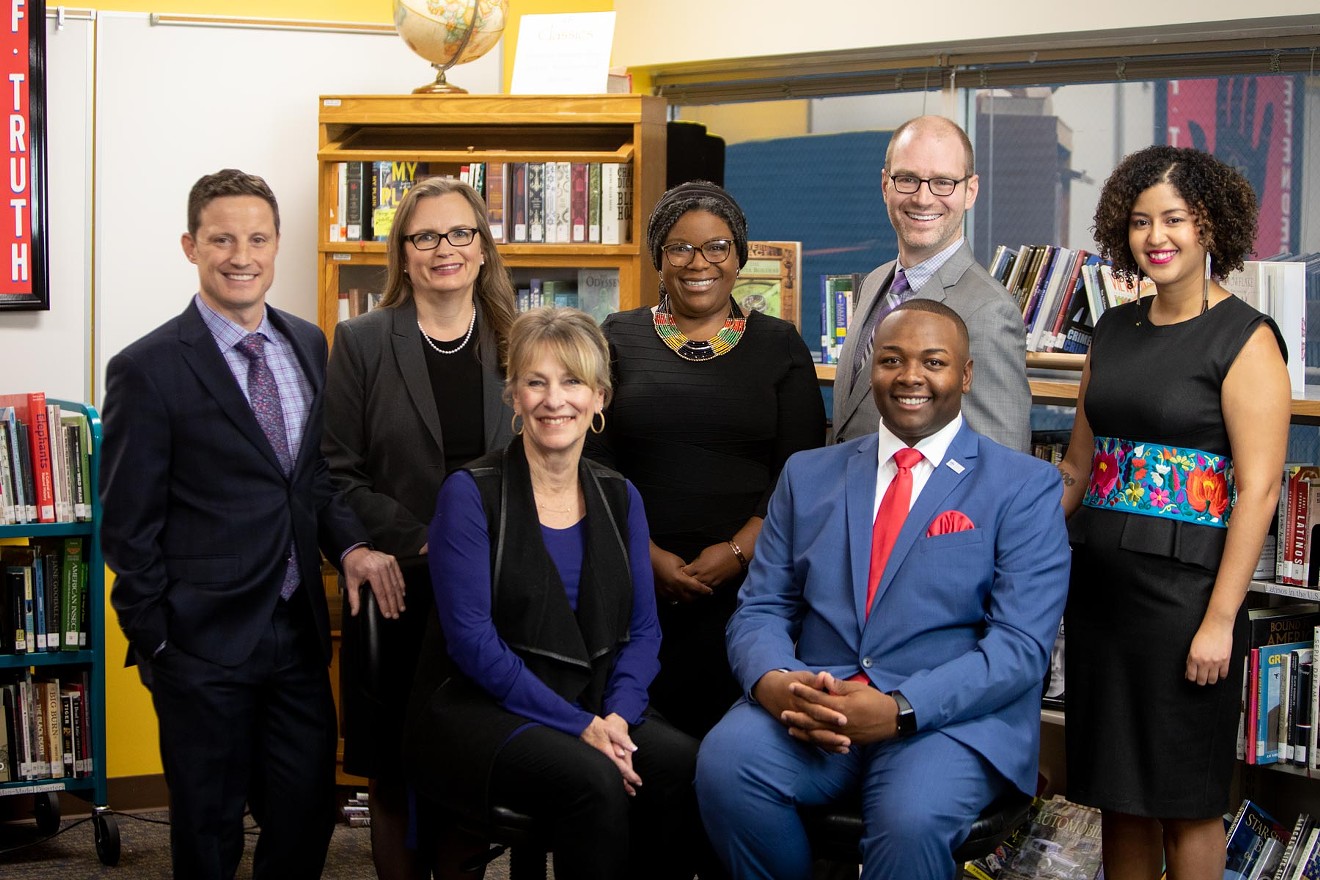This month, the Denver Public Schools Board of Education adopted the $1.2 billion dollar budget for the 2021-2022 school year. Remarkably, there was virtually no public discussion by members of the board on the budget— neither during the presentation of the proposed budget in May, nor during the recent session to approve spending plans for the state’s largest school district.
This is especially troubling this year, because of many parents’ deep worries about how far their children have fallen behind during the pandemic, and also because DPS is set to manage a multi-year infusion of federal funds from the American Rescue Plan Act.
Over the last year, we at Transform Education Now conducted extensive parent outreach in order to support families through remote learning. TEN reported that, on average, families reported having access to fifteen hours a week of instruction time this past school year — half what students receive during a regular school week.
Before the pandemic, there were more students in DPS who were below grade level than there were students who were meeting grade-level expectations. Just 42.8 percent, or 4 out of 10 students, in grades 3-8 were reading and writing on grade level before the pandemic, and 3 out of 10 students, or 32.7 percent, were doing math on grade level in grades 3-8. We still don’t have a clear picture of how students are performing academically after more than fifteen months of remote learning.
The Board of Education has had no public discussion on academic progress this past year, either. And there has been negligible communication with DPS families about the districts’ plans to mitigate the pandemic’s disruptions on student learning.
The adopted budget doesn’t lay out clearly how stimulus funds will be spent. The proposed budget presented for the board’s consideration in May indicated that most of the federal stimulus dollars will go to maintain the status quo, or “general operations and fiscal health.”
As mandated by the Rescue Plan, at least 20 percent of the federal money must be used to provide evidence-based interventions that address learning loss. DPS staff indicated in May that $28.7 million would be used over three years for “accelerated learning,” explaining that this funding would go to “design groups for reimagining education.” Elsewhere in the proposed budget, we see that “accelerated learning” means the district will fund “Intervention Teachers, Mild/Moderate Teachers, InstructionalReading/Writing/Tutoring Paraprofessionals, ELA-S Teaching & Intervention, other instructional roles, Instructional & PD Extra Pay, and materials.”
According to the adopted budget, district-wide goals for accelerated learning "will be cascaded over the summer.” The cascading doesn’t appear to have started — the school district simply has not communicated to families what the plan is to catch kids up. We owe it to families to be clear how we are going to spend this infusion of funding to address their concerns.
Earlier this year, in the height of disrupted learning, polling data by Keating Research revealed that one in six parents were moving their children out of DPS. The DPS budget states that a sizable portion of stimulus dollars, or nearly $27 million over three years, is going to keep schools afloat — “to support enrollment loss." Isn’t this the same as continuing to fund failure? Or kicking the can down the road on difficult decisions necessary to prioritize spending to benefit students? How is it possible that the elected board isn’t asking these questions or feeling the sense of urgency to inform the community?
A small schools resolution adopted this month acknowledges the need to develop a long-term plan to address the declining school-age population and the need for consolidation of schools in parts of Denver. But the board doesn’t acknowledge that some of the drop in enrollment is clearly due to families moving their kids elsewhere, frustrated by the quality of the education their kids’ schools are delivering.
It’s summer now, and the DPS board won’t meet again until August. Interestingly, a member of the board who also serves in the state legislature, State Representative Jennifer Bacon, sponsored HB 1259, which requires school districts to establish “internal progress monitoring” to address COVID-19 learning impacts and to submit plans for extended learning to the Colorado Department of Education.
Meanwhile, families wondering what the future holds for their children are losing sleep. Nearly half of those surveyed by TEN this year did not feel their children were ready to move on to the next grade level. Now a huge amount of money will be spent to address this, and yet many parents continue to feel lost.
Overseeing the budget is one of the most important duties of the elected Board of Education. A healthy board should demand regular updates to the community and clear accountability for spending — not to mention clarity for everyone on how the city’s children are doing academically.
Nicholas Martinez is executive director of Transform Education Now.
[
{
"name": "Air - MediumRectangle - Inline Content - Mobile Display Size",
"component": "12017618",
"insertPoint": "2",
"requiredCountToDisplay": "2"
},{
"name": "Editor Picks",
"component": "17242653",
"insertPoint": "4",
"requiredCountToDisplay": "1"
},{
"name": "Inline Links",
"component": "18838239",
"insertPoint": "8th",
"startingPoint": 8,
"requiredCountToDisplay": "7",
"maxInsertions": 25
},{
"name": "Air - MediumRectangle - Combo - Inline Content",
"component": "17261320",
"insertPoint": "8th",
"startingPoint": 8,
"requiredCountToDisplay": "7",
"maxInsertions": 25
},{
"name": "Inline Links",
"component": "18838239",
"insertPoint": "8th",
"startingPoint": 12,
"requiredCountToDisplay": "11",
"maxInsertions": 25
},{
"name": "Air - Leaderboard Tower - Combo - Inline Content",
"component": "17261321",
"insertPoint": "8th",
"startingPoint": 12,
"requiredCountToDisplay": "11",
"maxInsertions": 25
}
]











